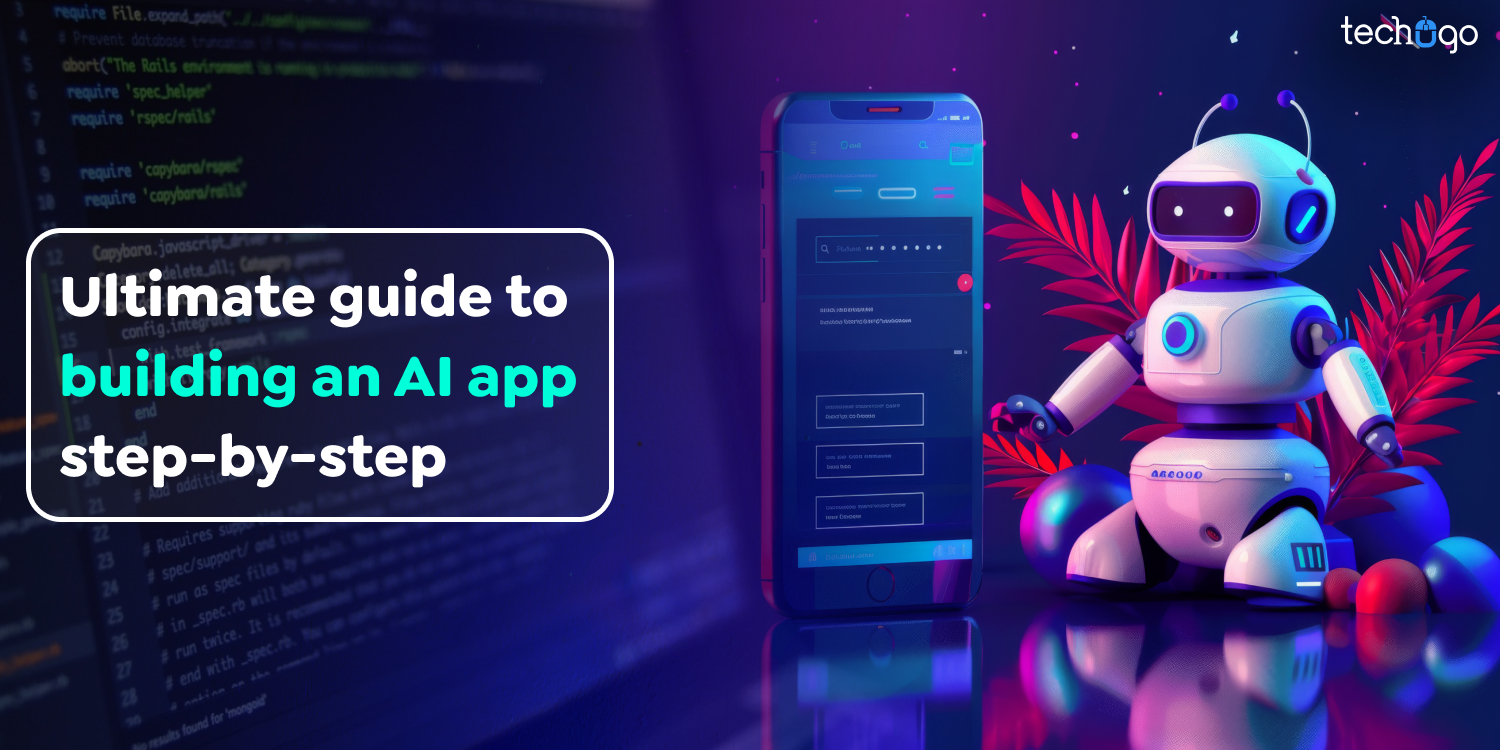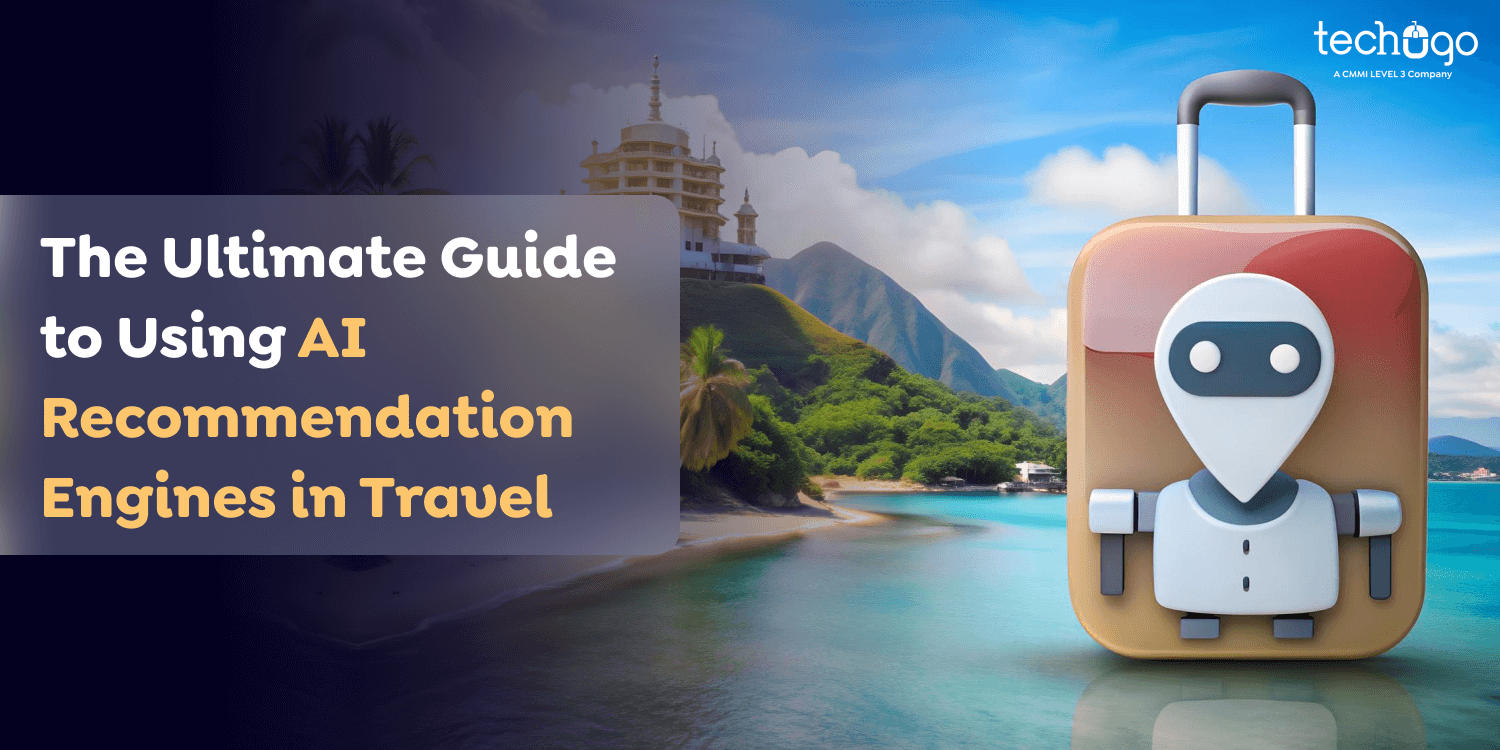11 Jul 2024
Updated on January 31st, 2025
How AI is helping the entire healthcare industry
Matthew Connor
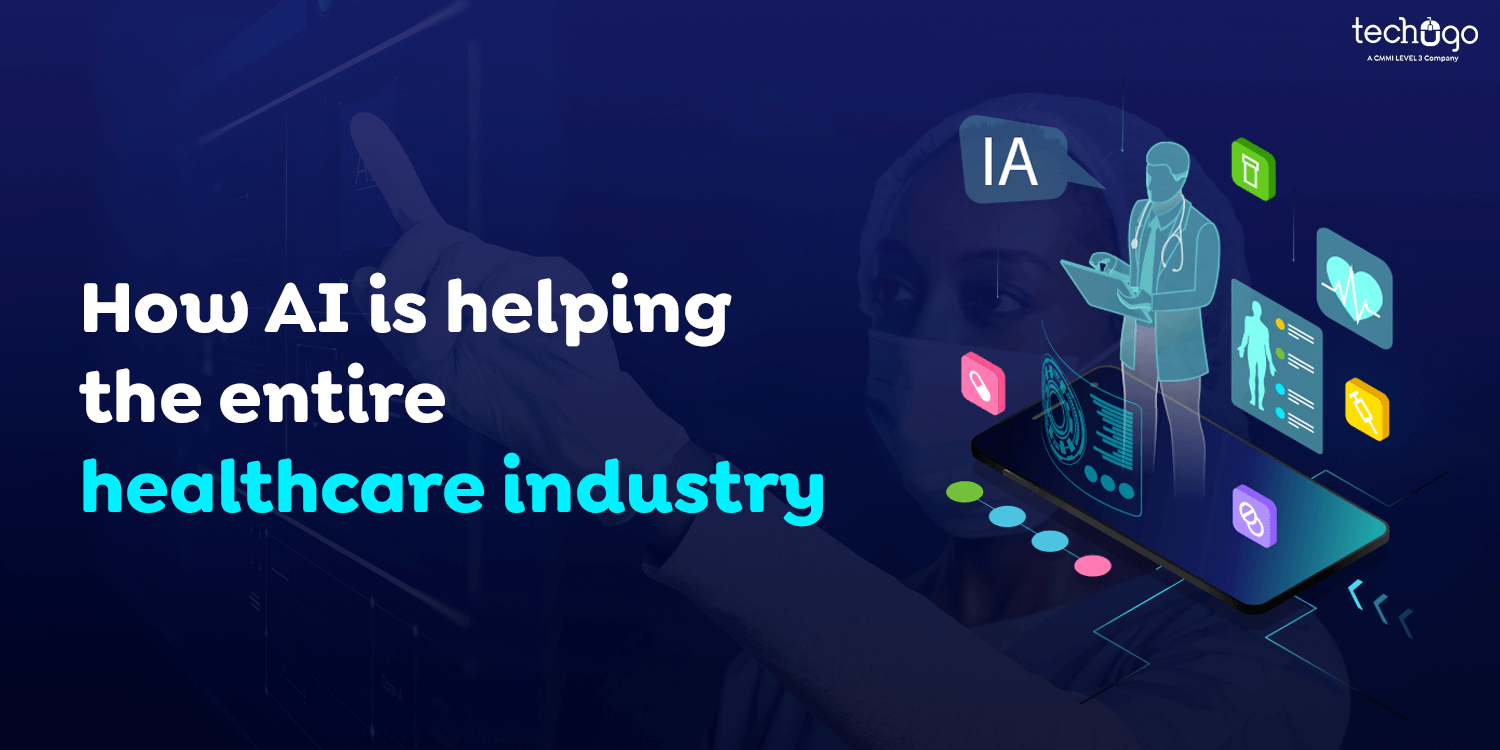
AAI is gradually rising in Canada’s healthcare sector, with positive impacts on improving the health of patients. Moreover, healthcare is an area that is bound to experience positive change through aspects such as clinical efficiency, diagnostics, treatments, prevention, and care delivery through the implementation of AI. Since it is also implemented in resource-constrained areas with scarce health facilities. Additionally, AI is especially beneficial as it provides more information to health practitioners to enhance understanding concerning their patients. However, there are some hurdles that need to be met, and correct supervision is needed to ensure that AI in healthcare solutions being implemented meets the expected results and that no wrong or biased outcome is recorded affecting the patients.
AI in Healthcare Canada is expected to revolutionize the healthcare industry and, hence, the healthcare service consumers and producers. Its benefits, in terms of improving various patient experiences and optimizing many different aspects of the healthcare business, will propel the formal healthcare sector of Canada forward.
Are you ready to delve deeper?
If yes, then let’s get started!
Understanding AI in Healthcare
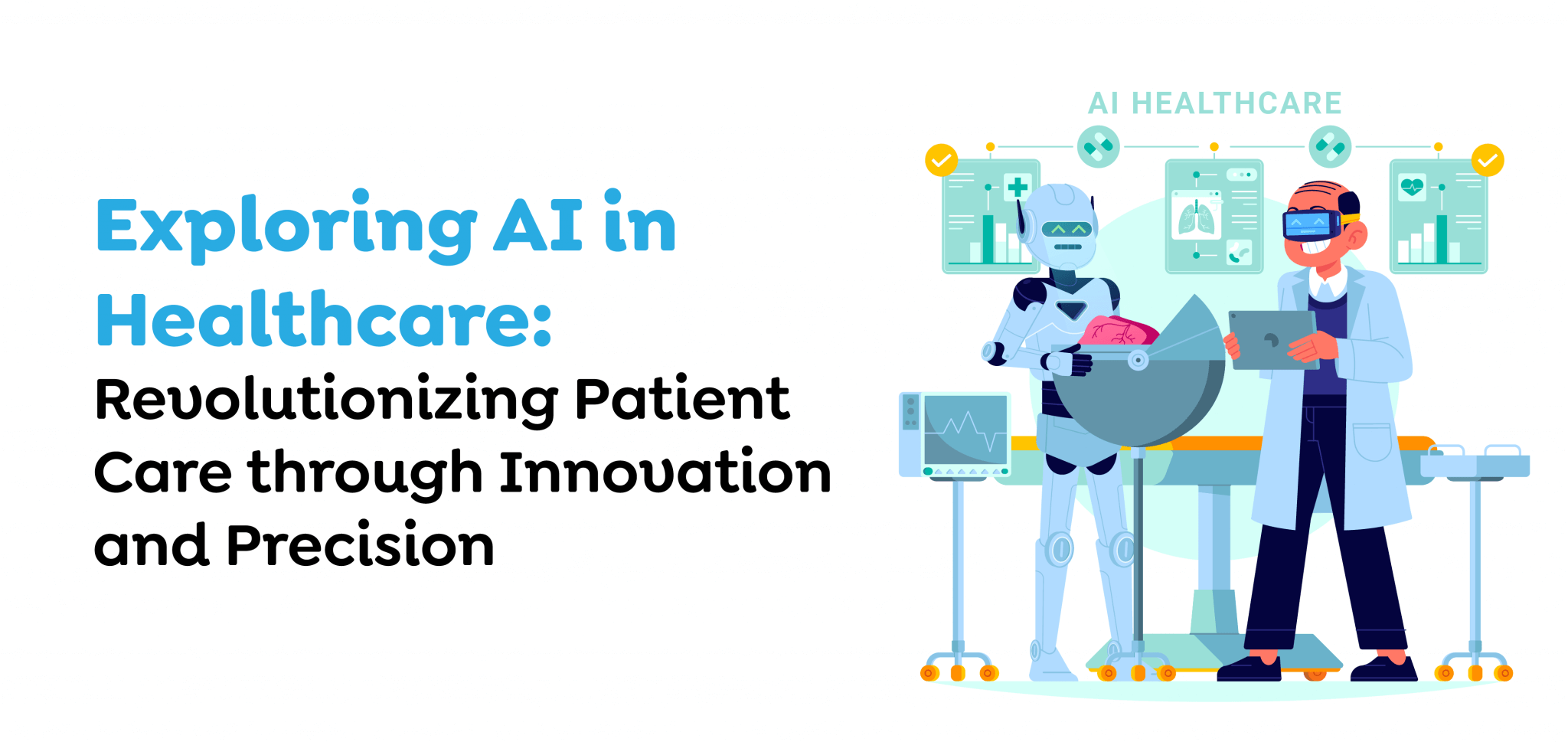
AI can be described as computer science or hardware with futuristic capabilities to solve issues and make decisions. Concerning its application, AI is employed in the healthcare domain in various ways, one of which is in the exploration of the field, the development of medications, as well as in the prescription processes.
Today’s most used forms of AI application in healthcare include machine learning, natural language processors, Robotics, and processors of vision. These applications involve the application of AI to gain insight into medical data. Due to the vast quantities of patient health data generated, these AI systems can learn and improve their performance repetitively.
Now, let’s explore how AI is revolutionizing the healthcare industry.
How AI is Revolutionizing the Healthcare Industry?
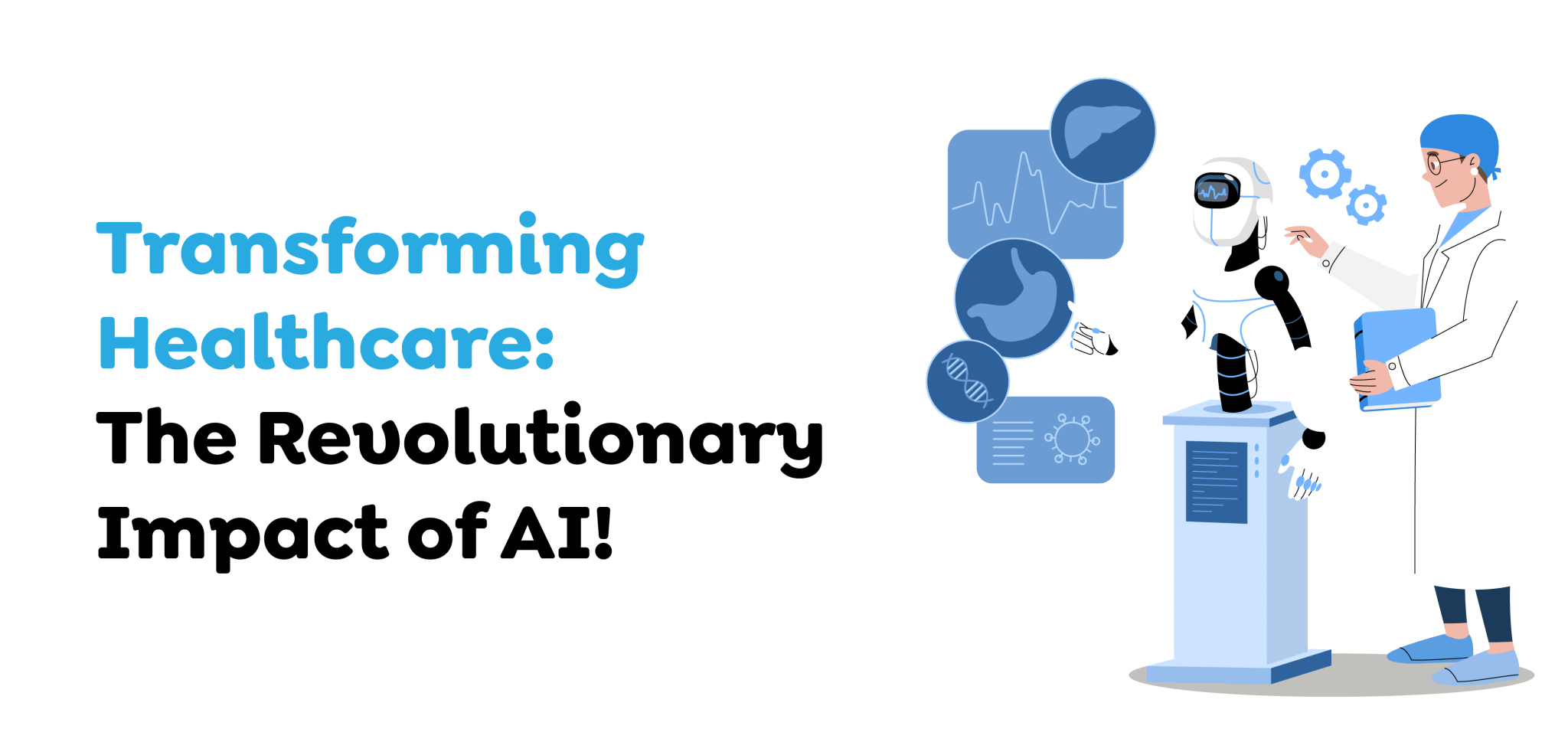
AI in healthcare is still in its infancy but will have greater innovations in the future that will use multiple sorts of data to work cohesively. Here are some key AI and machine learning in healthcare technologies currently in use:
-
Optical Character Recognition (OCR):
There was a lot of writing that required the transcription of physician’s notes by hand, a process that was tiresome and often accompanied by a high error rate. This has been automated by OCR technology, which uses tools to recognize and transform handwritten text into digital form. This capability not only increases the accuracy of data capture but also optimizes the process of converting medical records into digital formats. Moreover, there is something that most healthcare centres lack or are struggling to do efficiently. Thus making the retrieval of patient information faster and easier to integrate the information with the EHRs. This advancement is significant for accumulating the efficiency of all or most overall healthcare operations where a lot of time is wasted on completion and ensuring that the patient’s records reach the necessary personnel on time.
-
Rule-Based Expert Systems:
- AI in healthcare systems works based on rule-based expert systems that use rules to interpret facts and make clinical suggestions. Though efficient, indicating basic scenarios, these systems can reach the critical level of unbelievable complexity and errors can occur. AI is now advancing to machine learning methods whereby it is possible to train machines to learn on their own. The use of machine learning entails the automation of the process of allowing the system to learn and develop the right information by feeding it with large volumes of healthcare data that contain the right information. Moreover, it can help in the development of the right clinical decision support system for the right patient. Such evolution improves diagnostics and the treatment process and aims to optimize the performance of AI systems in healthcare.
-
Natural Language Processing (NLP):
NLP is currently changing how healthcare practitioners communicate and extract valuable information from textual data that is not structured, such as clinical notes, research articles, and patient records. NLP methods can learn and present knowledge from various textual sources. Additionally, it facilitates easy retrieval of data by the healthcare sector, patterns detection and resolution of issues through data. Moreover, NLP addresses large-scale natural language processing to improve clinicians’ decision-making, contribute to medical research, and execute administrative tasks. This capability helps enhance patients ‘ well-being, increase the efficiency of the resources required in the healthcare context, and support the development of evidence-based practices in medicine.
Moving forward, let’s explore the transformative benefits of AI in healthcare
Benefits of AI in Healthcare
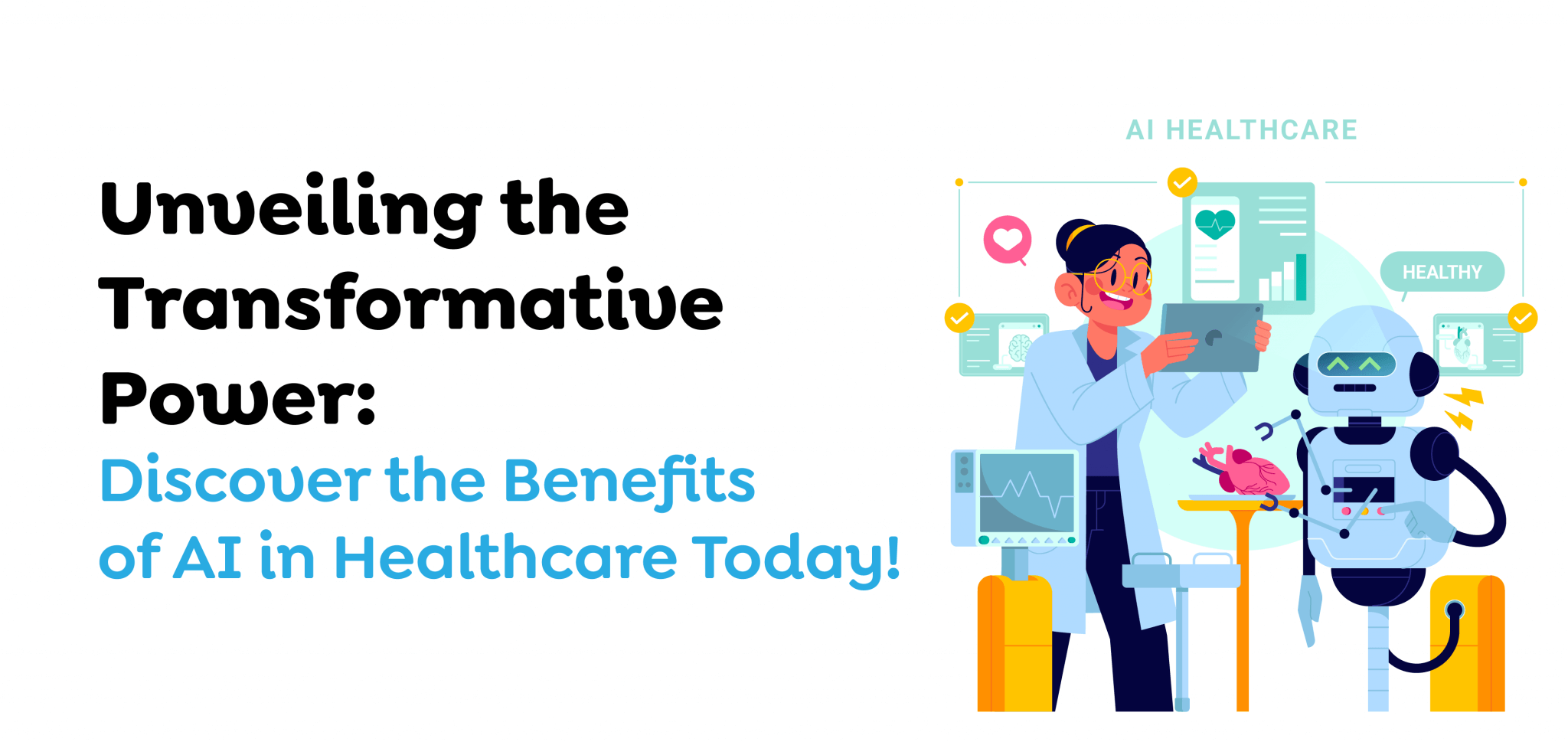
Integrating AI in healthcare offers a wide range of transformative benefits that enhance both patient care and operational efficiency. Let’s discover the benefits of AI in healthcare:
-
Enhanced Data Management:
Healthcare facilities manage massive numbers of patients interacting with them while producing outcomes and subjecting rules to patient data privacy. Through the application of AI in the digitization process, data storage and analysis are centralized, enhancing data management. This centralization of healthcare data management not only increases the availability of patient data for the diagnosis process. It is also an important measure to abide by regulatory frameworks and deliver more informed decisions by healthcare providers.
-
Improved Patient Accessibility:
Mobile applications based on artificial intelligence and virtual assistants help patients receive intensive care and consulting services as well as necessary information through their devices. These applications allow the patient to set an appointment and track the course of chronic diseases with an app. Accessibility also helps increase patient involvement and decreases the workload of doctors and other healthcare professionals by directing non-emergency requests to other platforms.
-
Enhanced Internal Communication:
Interprofessional communication is crucial in nursing since it aims to provide a well-coordinated care delivery system. AI helps create platforms that promote safe individual messaging. Moreover, it is based on modern protocols and allows the uninterrupted transfer of information about patients and their treatment. AI makes decisions based on participation and helps to improve the organization of medical work and to avoid mistakes.
-
Cost Efficiency:
Although the first costs of implementing AI in healthcare are relatively high, they pay off over the long term in terms of the cost of healthcare organizations. With the help of artificial intelligence, predictive analytics enhances the assessment of the rationing of resources. Therefore, it decreases the rates of application of ineffective orders and hospitalizations and pinpoints the most efficient courses of treatment. In addition, telemedicine and virtual care solutions cut down patient transportation expenses and boost cost-saving measures in the healthcare facility.
-
Preservation of Vital Information:
AI systems overtly archive and process large volumes of health data, providing patient clinical data and narrative report information. AI, through the use of machine learning, analyzes big data and provides evidence for drug discovery, and patient treatment options. Such analytical practices certainly contribute to improving medical science, treatment levels, and patient care.
-
AI-Powered Chatbots:
Conversational AI, particularly chatbots and virtual health assistants transform patient communication and health literacy management. These intelligent systems employ NLP techniques for patient communication, answering medical questions, handling patient symptoms, and even suggesting healthcare-related advice. Thus, by applying AI in chatbots that provide patients with accurate and timely information, patients are encouraged to maintain their health actively.
These abundant benefits show the imaginable role of AI in the future of healthcare services. As it leads to a better and quicker idea of patient-oriented, available, and effective healthcare services globally. Recognizing that AI technologies are undergoing continuous advancements, the whole spectrum of their application in healthcare is considerable due to the possibility of future improvements in such aspects as clinical outcomes, system effectiveness, and patient experiences.
Let’s discover how AI is used in healthcare to transform clinical applications in Canada, revolutionizing healthcare delivery and patient outcomes.
Clinical Applications of AI in Healthcare
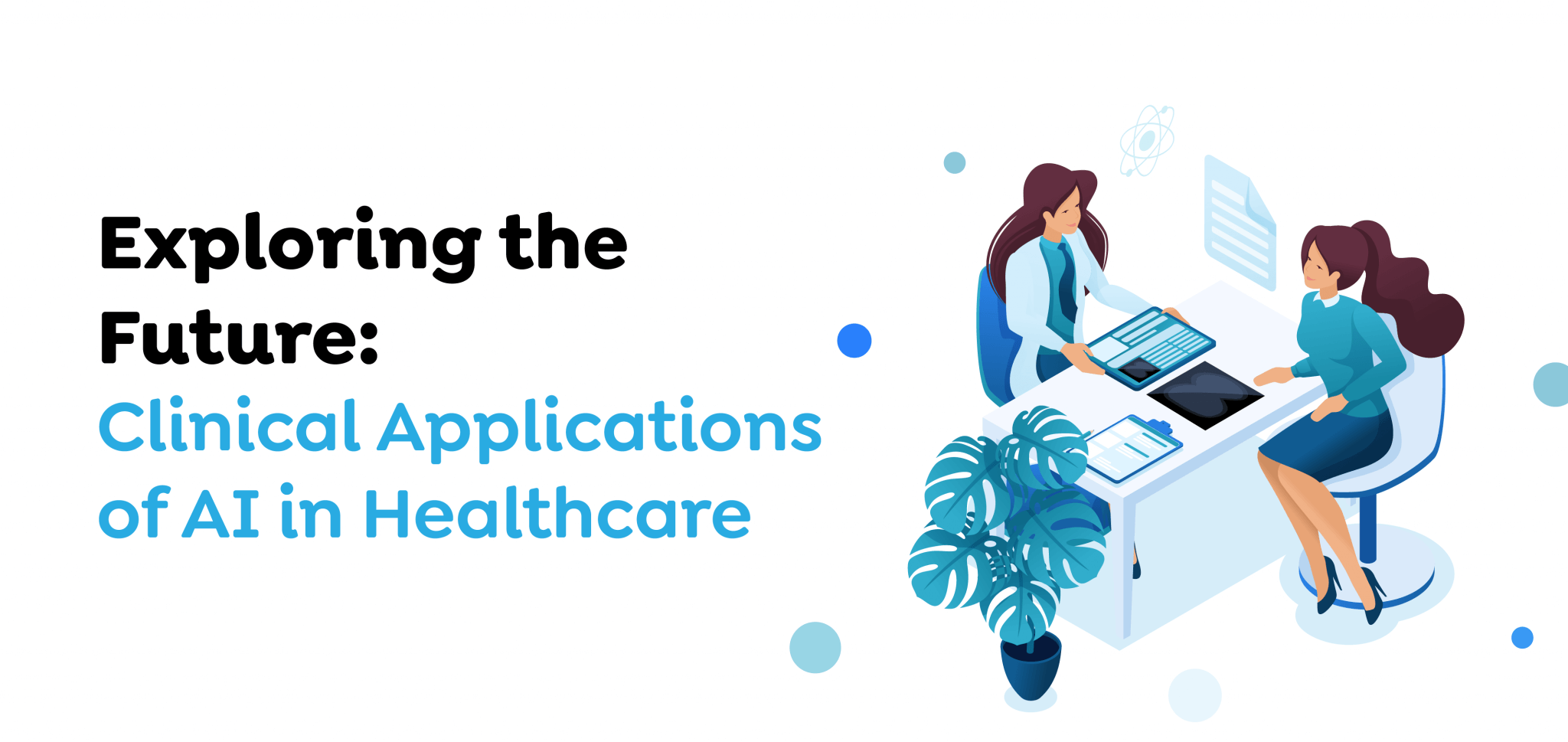
AI technologies are revolutionizing healthcare across various clinical domains in Canada, enhancing diagnostic accuracy, drug discovery, personalized medicine, and healthcare delivery:
-
Diagnostic and Imaging AI Applications:
Cutting-edge technology, such as AI in medicine, is revolutionizing how diseases are diagnosed, especially using imaging. Doctors can use algorithms to analyze Retina scans and X-rays to get high accuracy for early detection of different diseases. This positively contributes to identifying critical cases among healthcare providers while possibly shortening the diagnostic time and expenses. Although AI diagnostics devices are in the process of gaining approval, a physician’s corroboration is necessary to make the tests clinically sound and accurate.
-
AI in Drug Discovery and Development:
AI accelerates drug development by rapidly sieving large data sets to develop compounds with specific therapeutic traits. This kind of computational analysis substantially cuts discovery timelines, which helps create new treatments. AI also helps in testing, clinical trial management, trial design, and patient identification and recruitment, thus improving all the processes in drug development.
-
AI for Personalized Medicine:
AI techniques incorporate genome, metabolite, protein signatures, and clinical information to design treatment plans according to molecular distinguishability. This approach allows the prescription of individual treatment with account for the patient’s heredity, thus achieving maximum effectiveness of drug administration and minimizing the side effects. Accuracy plays a crucial role in diagnosis and treatment, which is evident in the effectiveness of finite therapies and diseases’ personalized approaches advanced by AI.
-
Telemedicine and AI-Enabled Healthcare Delivery:
AI integration in modular and telemedicine schemes and wearable devices improves healthcare availability. An assessment of systems for triaging symptoms involves using chatbot services, while health applications that utilize artificial intelligence analyze patients’ data to make relevant conclusions and recommendations. Telemedicine stations integrated with computer vision and applied predictive analytics control vital signs and identify potential health patterns requiring intervention in chronic conditions. These have become important in enhancing care delivery, especially during emergencies, and expanding healthcare coverage to vulnerable groups.
The following examples show how AI is revolutionizing the healthcare system in Canada in terms of diagnostics, therapy, patient-centered treatment, and the increasing usage of telemedicine to improve the quality of healthcare and patient satisfaction.
After learning about AI’s clinical applications, let’s delve into the challenges of implementing AI in healthcare.
Challenges in Implementing AI in Healthcare
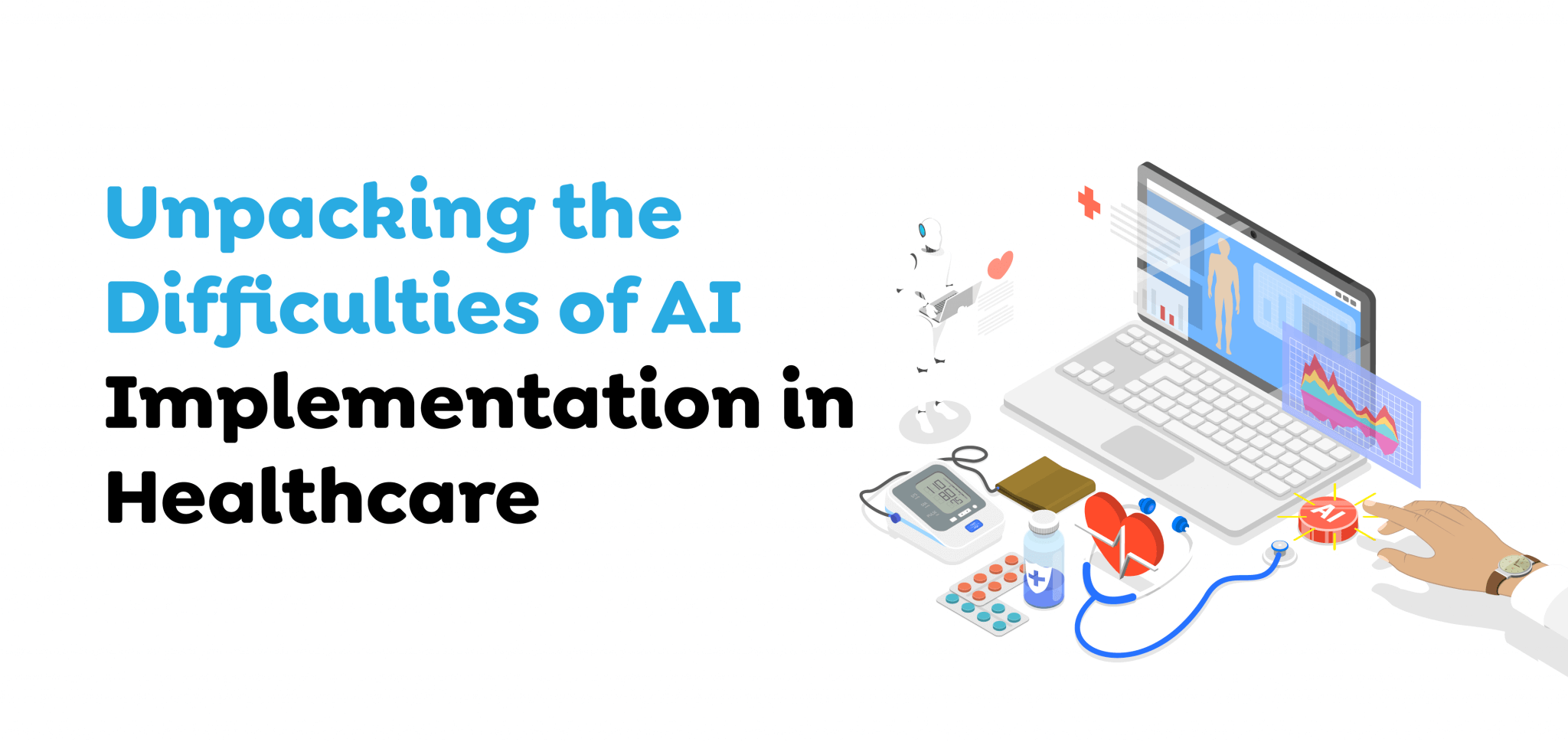
Some challenges arise from integrating advanced technologies, such as AI and ML, into healthcare systems. These challenges range from patient safety concerns to data quality issues:
-
Patient Safety: AI algorithms
work depending on the data with which they are trained to work. If the input data is wrong or missing, the results may be wrong or detrimental to patient welfare. The necessity of accurate and reliable machines is also very important not to make bad decisions that harm the patients.
-
Data Quality Issues:
Machine learning algorithms always critically depend on the quality and consistency of the data being analyzed. Medical data may be available in large volumes, sometimes lacking important structured formats and having errors and inconsistencies. Thus, it needs preprocessing and, most of the time, cleaning before it can be used for AI applications.
-
Fragmented Data Systems:
Many healthcare organizations encounter a lack of integration between various systems, which results in limited data-sharing ability. Struggling for interoperability is critical because a consolidated view of a patient’s health is invaluable for understanding them and providing effective teamwork. Solving these problems implies a long-term vision of the organization and investments in a unified platform for data management.
-
Budget Constraints:
A key challenge is that healthcare is usually handled under financial constraints, meaning that it is difficult to invest capital and funds in the acquisition of AI technologies. People need to show the possible savings in costs and improve the efficiency of AI initiatives to obtain proper funding and resources.
-
Privacy Concerns:
Healthcare data is a special type of data that implicates patients’ personal information, so it is very sensitive and engulfs data privacy issues. The application of AI solutions needs strict measures to secure patient data against any breakdown or intrusion. When selecting partners for the development of artificial intelligence solutions, it is necessary to focus on reliable contractors familiar with the requirements for data protection and patient rights.
To overcome these difficulties, all healthcare organizations should use AI solutions and establish norms, rules, and standards regarding its effective use in healthcare systems. Thus, healthcare organizations can realize the benefits that have long been sought from AI applications in various sectors for better patient outcomes and more efficient system functioning.
Let’s explore why using Techugo for AI healthcare integration is pivotal for transforming patient care and operational efficiency.
Why Choose Techugo for AI Integration in Healthcare?
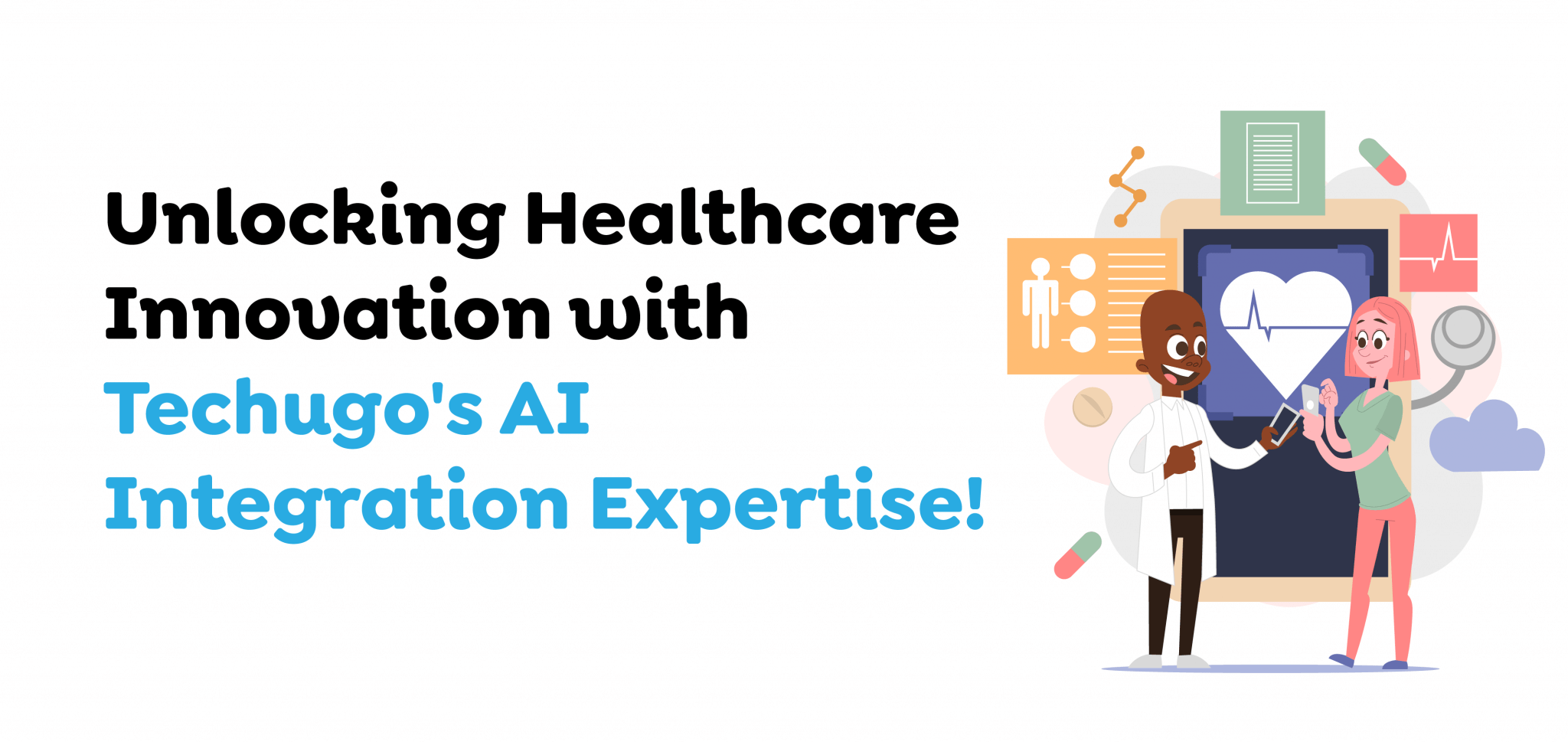
The healthcare industry is embracing AI to enhance security and efficiency in medical services. Techugo specializes in developing AI solutions tailored to healthcare and offers advanced technologies to meet evolving customer demands.
Techugo is a machine learning app development company that excels in developing AI apps. We provide customized solutions for healthcare, pharmaceuticals, telemedicine, and more. Whether you need predictive analytics, personalized patient care tools, medical image analysis, or AI-driven virtual assistants, our team delivers innovative solutions to revolutionize healthcare delivery.
Partnering with Techugo ensures access to cutting-edge AI technologies that optimize operational processes, improve patient outcomes, and drive innovation in healthcare services.
Wrapping Up!
It is essential to conclude that the use of AI in healthcare diagnostics in Canada has the potential to enrich the existing industry and establish new benchmarks for providing services to the population in terms of combating diseases. AI technologies are already showcasing the best ways of improving the accuracy of diagnosis, developing more efficient and effective treatment processes, and making specialized healthcare services more readily available, particularly in rural areas and regions with limited access to healthcare facilities.
Thus, with the further development of AI in healthcare, the possibility of its application in the healthcare industry can be considered rather significant. When it comes to patient safety, data quality, and patient privacy, utilizing AI capacities in the healthcare sector can solve these problems. To achieve these goals, we recommend fostering consistent investments and increasing the proper use of AI in healthcare systems across the country. This will advance the quality of care provided to patients, improve the delivery of healthcare solutions, and enhance resource utility.
Get in touch with us today to begin a journey towards digital transformation and excellence together.
Get In touch
We are excited to here from you and let’s start something special Together. Call Us for any inquiry.
Write us
sales@techugo.caJust a call away
About you

